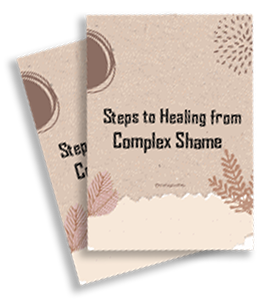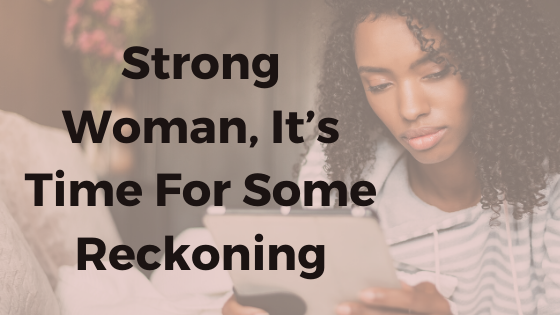I might step on some toes today, but it’s in your best interest, so get ready.
Are you acting like a mother or a wife to your spouse?
Is your daily mantra a constant telling him to do the things- back seat driving, taking over his tasks because you’re “better at it”, asking him to pick this up, put this away. Does he have an actual chore chart or a running one in your head?
Do you remind him to do the basics- iron his shirt, call his mother to wish her happy birthday, etc.
I am fully aware how easy this slippery slope can become. As a mom, you take care of the kids, you manage their schedules, hold them accountable, feed them, fill in all the gaps, teach them to be responsible adults. It’s so easy for your spouse to just slip in there like he’s one of the kids. Until it’s not easy anymore. Until you are resentful, angry, frustrated and I’m going to say the word…. naggy.
Our goal in parenting is to slowly let go of the reigns until they’re doing it by themselves. But what happens when you’ve started parenting your husband? What’s the goal there? Are you raising him? And if so, when will he be raised?
How are you supposed to know if you’re doing too much and actually enabling your spouse to make both of your lives miserable- yes, both- it’s miserable being mommed by your wife and it’s miserable to feel like your husband is your child. People take on those roles nonetheless, not realizing the trap they are making for themselves.
Here are a few signs:
1. You know his schedule better than he does and you are double-checking to make sure his responsibilities get done.
– He’s got a doctor’s appointment at lunch today, let me text him to make sure he’s on his way.
– His flight leaves tomorrow at 8, let me make sure he’s all packed and knows what time he needs to leave.
Here’s what happens with this scenario: If you forget to remind him of something, you get blamed for something that wasn’t your responsibility to begin with. Then, you have this unspoken agreement that somehow it was your responsibility to make sure he is doing his responsibility. Even just saying that sounded like too much.
Here’s what you should do: Let him make his own mistakes. If he keeps missing things and not taking care of his responsibilities, there is a larger conversation that needs to be had, but the answer isn’t to swoop in and take care of the responsibility yourself.
2. You know his weak spots and try to control them.
Do you hide food or alcohol, do you try to make sure he’s not tempted by his vices. Do you punish him with a cold shoulder or withhold sex from him when he hasn’t “obeyed”?
Here’s what to do instead: Ask him to take better care of himself. Explain how his vices are affecting the marriage, erect boundaries that don’t include you policing them.
If you don’t want your husband consuming porn or drinking alcohol or stuffing his mouth with donuts, make that clear. If he continues to do it, your answer isn’t to hide all the porn and throw away the alcohol and punish him. Your answer is to follow through on your consequence.
I can’t tell you what that consequence should be. It may be that you will no longer live in the same home with him. It may be that you will no longer share his room or it may be that you won’t engage with him at all when he is partaking- or maybe it’s more specific. You need to figure out your boundary. But erect it and hold it- don’t police him.
3. Do you triangle yourself in his relationships?
– Do you tell him not to see friends of his that you don’t like.
– Do you remind him to call his mother or the friends that you do like?
– Do you give unsolicited advice about his relationships?
You may be thinking at this point- Isn’t the role of a spouse to be a helper? Yes, but only if you’re really helping. Not if you are enabling. He’s still your spouse and he probably doesn’t do any of those things for you. You take care of you and the role of a spouse is to be a partner- not a parent.
A partner will give advice when solicited. A partner will even provide some accountability when it is requested- that’s the operative word- when it is requested. A partner provides a joint effort, but does not take on sole responsibility. A partner provides an additional brain, personality and body to work together to further your mission. A partner is not a fixer. A partner is not a mother. A partner is not a savior.
4. Or maybe you over help him with his career. Writing his resume, researching linked in for jobs. Grilling him on what he’s done today. Asking other people.
The truth is that intimacy gets compromised when you become his mother. When you micromanage his life, you lose the very thing you are trying to save.
He becomes resentful, lazy and even worse, he begins to act like a teenager, rebelling, sneaking and acting out. That makes you double down your efforts and we can all see what a train wreck that can me.
These roles becomes more solidified over time and it becomes difficult to disentangle yourselves from it.
I have seen this in small ways with my husband and especially with parenting, where he has slipped into the parent role and will respond to the kids with “Ask your mother” when they ask him something. I had to remind my husband that I never say ask your father, unless I am saying, your father and I need to talk about this. Because that’s sending a message that I am the authority and you are all the children. He recognized this and changed the way he spoke, but this is the subtle way this can show up in relationships.
BUT THERE IS HOPE. THERE’s ALWAYS hope.
So what can you do? Identify which behaviors are parentifying you. You probably have identified some behaviors you are doing from reading this far. Try a run of not doing them. Yes, the action you have to take is non-action. It’s amazing how difficult doing nothing can feel, but you’ve got to let him be responsible for something you used to do- even if you do it better.
When my mother in law got sick a few years ago, I quickly- almost imperceptibly slipped into the caretaking role for her. We moved her into our home while we were trying to figure out a long term plan for her. And the next thing I knew, I saw caretaking being added on top of my already busy life. I saw where this road was headed quickly because my husband was all too happy to not have to deal with the difficulties of caring for his aging mother. So, knowing what this dynamic would create in me, I had to make the fast, hard decision to do nothing. When his mother’s bed needed to be changed, I said, here ya go. Change it. When she needed to be watched in the middle of the night or she needed her medicine or needed to be walked or moved, I made it clear that I wasn’t going to step in and take care of his responsibility for him.
He was capable and actually, it was good for him to take care of his mother in this way. By allowing that role to be put on me, I would have robbed him of growth and development that happens when the roles shift with elderly parents.
I’m going to be honest with you, I felt guilty for not stepping in. I watched my husband struggle to take care of her. I stepped in and bathed her when necessary because I could understand why he wouldn’t want to do that for his mother. But otherwise, I let him handle it. And he has grown. And I am not overworked, bitter and resentful.
And you know what? My husband appreciates me more because he sees the type of hard work I do for this family and did for a minute for his mother before I required him to step up.
And once you have taken the role of non- action, think of what you need to take responsibility for in your life. Sometimes being a mother to everyone else is a wonderful distraction from some things you need to attend to in your life.
It’s time, my friend. Remove the cloak of mothering from your relationship and learn to mother yourself better.

Subscribe and Heal your Relationships.
You deserve a healthy, loving relationship and it starts with You. Learn how to untangle
Complex Shame™ and co-dependency to finally have the beautiful, secure relationship with
yourself and others that you’ve always wanted.
Subscribe and as a thank you, I’ll send you the Steps to Healing from Complex
Shame™.













